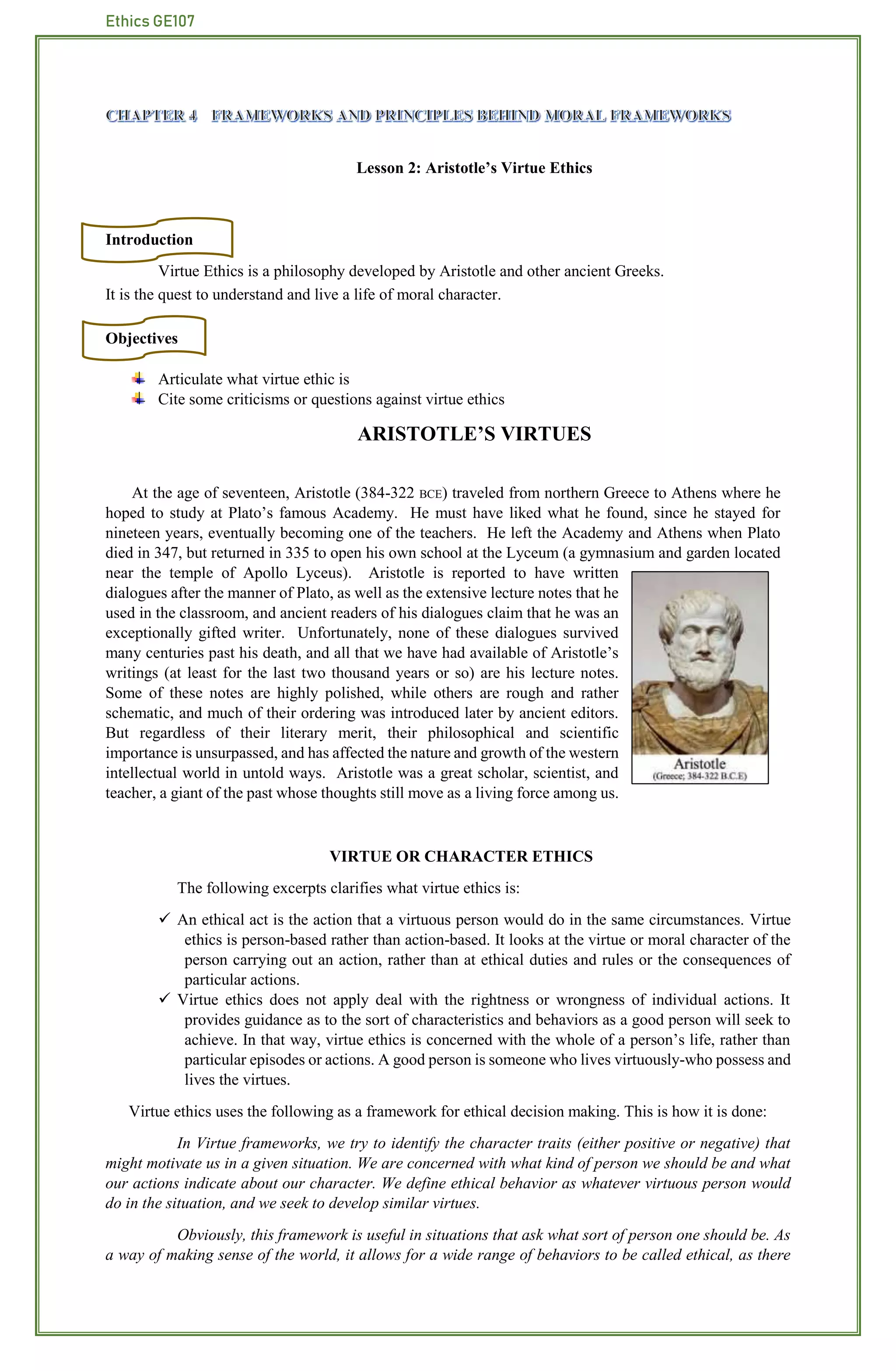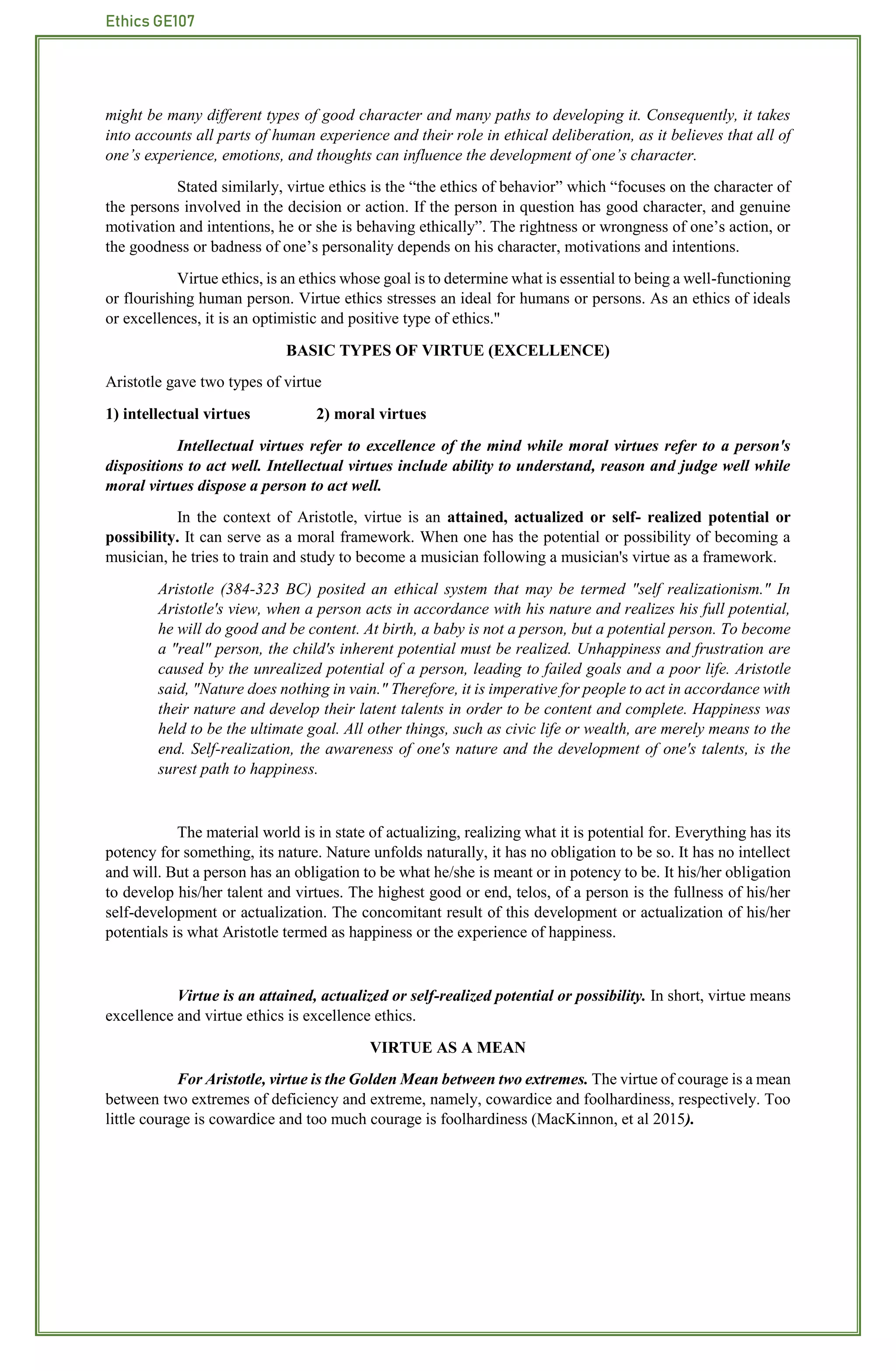This document discusses Aristotle's virtue ethics philosophy. It explains that virtue ethics focuses on developing good moral character and virtuous behaviors rather than rules or consequences of actions. Aristotle defined virtues as excellences that are a mean between deficiencies and excesses. He identified intellectual virtues like wisdom and moral virtues like courage. Virtue ethics was also discussed in other traditions like Confucianism, Hinduism, Buddhism, and Christianity. The document emphasizes that virtues are not inherited but developed through practice and choice over time.



